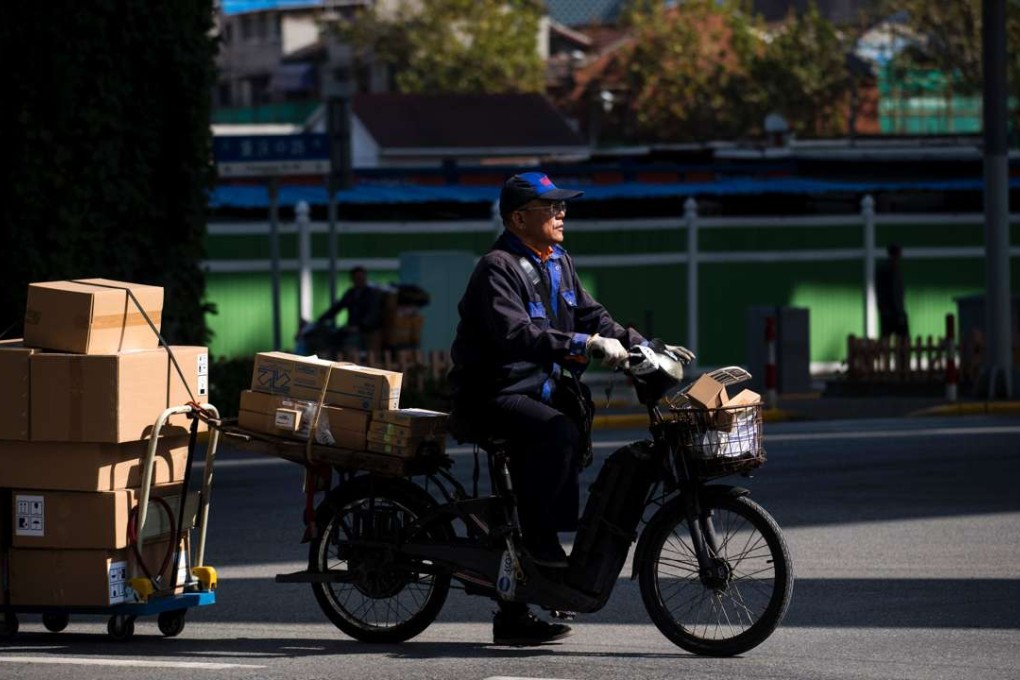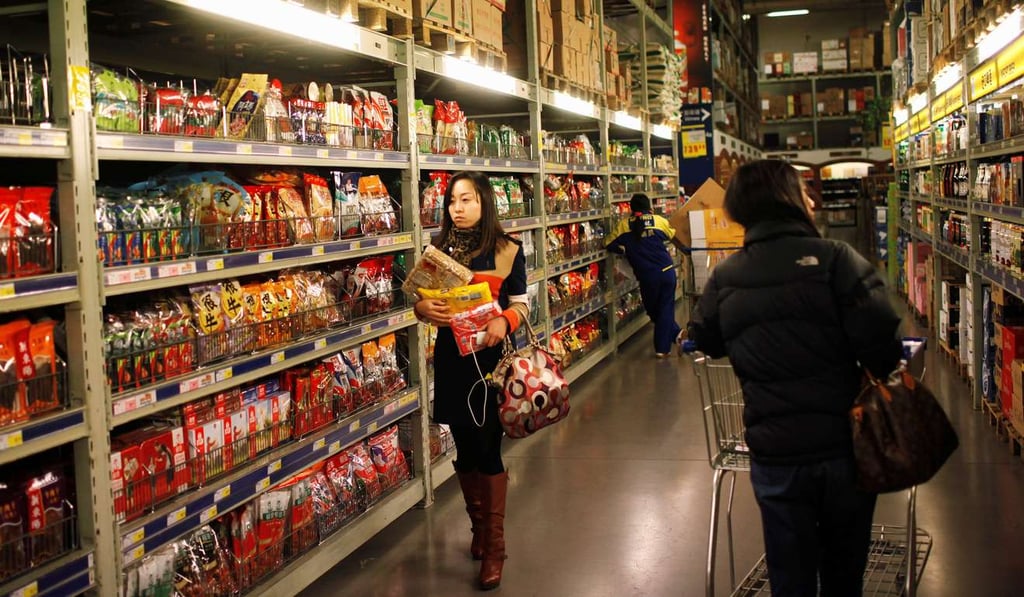China’s e-commerce sector set for rapid growth as consumers go online for daily essentials
Online sales of items like snacks and toothpaste are rising quickly although fresh produce delivery poses a huge challenge for Alibaba, JD.com

China’s e-commerce giants will enjoy fast growth as more people turn to online shopping for daily necessities such as biscuits, shampoo and drinks, according to new research by Goldman Sachs.
The market for so-called fast moving consumer goods (FMCG) is so large that it will support high sales growth for both Alibaba and JD.com as they take business away from offline stores in the coming years, according to a report published by the investment bank.
However, the online retailers face major challenges as they look for ways to bring fresh produce such as vegetables and live seafood to households across the country, said Goldman Sachs analysts led by Ronald Keung.
FMCG accounts for 37 per cent of all retail spending in the mainland, and the market is expected to expand by an average of 6 per cent annually before reaching US$2 trillion in 2020.
But due to low margins and a lack of fast delivery services, only 5 per cent of those purchases are currently from online shops, compared with 30 to 40 per cent for clothes and electronics.

“We expect Tmall and JD’s new supermarket initiativesto drive further online growth in the supermarket segment,” Keung said.
